
Right to Relief
Communities
Speak Out
Cambodia's microfinance over-indebtedness crisis is leading to human rights abuses. In 2020, the average microloan in Cambodia was $4,280 – the largest in the world. The average microloan was larger than 95% of Cambodians' incomes. There were 2.8 million microloans held across the country's 3.6 million households.
Desperate borrowers face immense pressure to repay these loans, many of which are collateralised with borrowers’ land titles. This project features the experiences of 14 communities who are affected by microloan debt and land conflicts. Click on the map below to read their stories, or read more about who we are and why we did this project.
Click on any of the filters in the box below to find out which communities are facing these problems.
Filter by unethical behaviours of credit officers
Aggressive collection practices • Pressured land sales • Threats • Encouraged use of private lenders • Fraud
Filter by negative consequences of microloans
Borrowing from private lenders • Eating less food • Selling possessions • Land sales • Child labour • Migration
Filter by reasons for borrowing
Repaying other debt • Healthcare • Building a house • Agriculture • Child's education
Click on community markers on the map to view their full profiles.
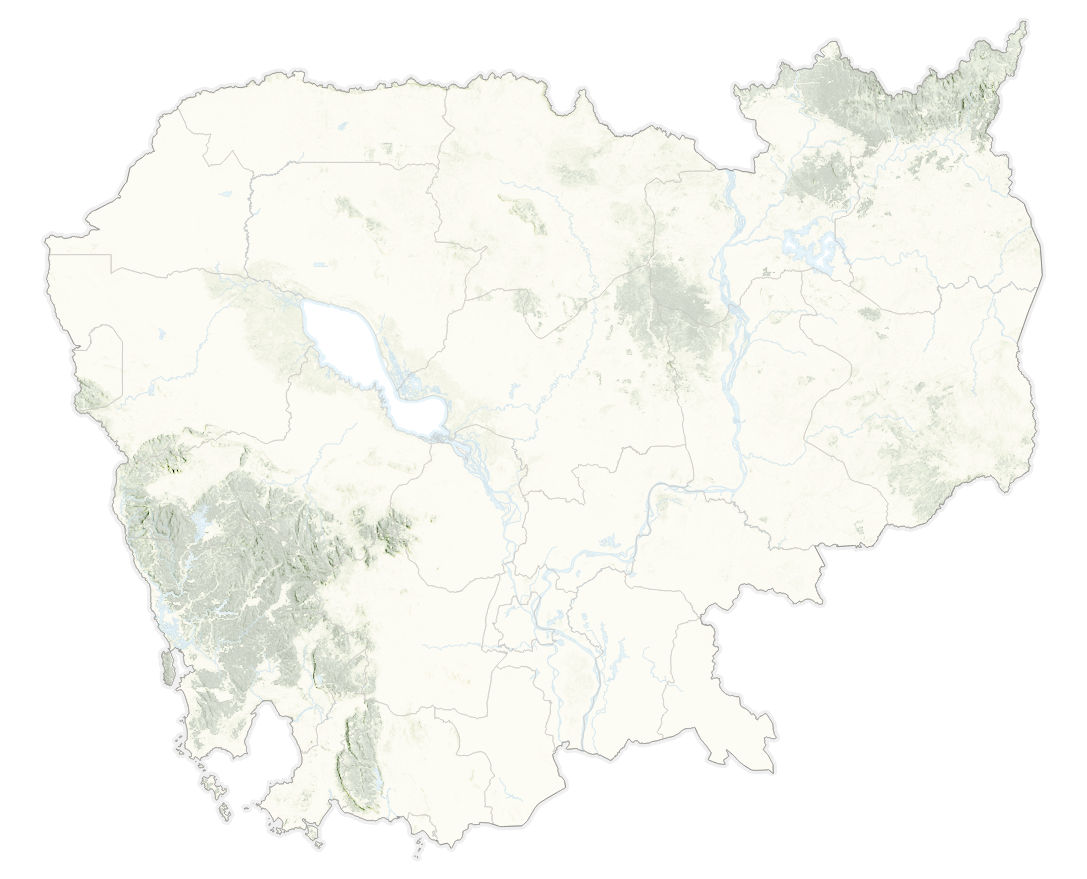
Number of Families
192
Start of Land Conflict
2005
Percent of Families with MFI Debt
80%
Average Loan Size
$1,000 USD
Sources of Income
Agriculture • Day labourer • Animal husbandry • Migration
Boeung Pram community is located in Battambang province, where community members began to live and grow crops in the 1990s. Previously located in Ampil Pram Deum commune, the area is now Boeung Pram commune. Community membes primarily rely on farming and migration to make a living, although chronic droughts and debt issues have led to a decline in incomes.
Starting in 2005, hundreds of new residents from different provinces began settling in the area, led by a man who would later become the local commune chief. The land disputes caused by this settling culminated in violent clashes in 2011, when community members’ crops and houses were destroyed, several people were injured, and a woman was left dead. In 2012, land titles were distributed to some residents, but 192 community members have not yet received land titles or any adequate compensation. The community has continued to petition local and national authorities for a proper solution, and after receiving a letter from the Senate in 2014, many community members can farm on their land while they wait for a more permanent resolution to their conflict.
Quotes from the community
Known microloan lenders in community
Reasons for Borrowing
Agriculture • Buy land • Healthcare • Migration
About 80% of families in Boeung Pram have a loan from an MFI, and many of those are group loans. Many families do not have land titles due to their land conflict, and this makes it difficult to get individual MFI loans. In one case, a community member had 3 different MFIs deny her an individual loan because she did not have a land title, and instead would only offer her a group loan. But despite this, and despite having smaller loan sizes than many other communities in Cambodia, borrowers in the community still reported facing threats, coerced land sales, eating less food, and migrating in order to repay MFI loans. Children have been taken out of school and sent to work, either in different provinces or in Thailand, in order to make more money to help pay off debts, and community members reported feeling shame, sadness and fear about their levels of microfinance debt.
Boeung Pram community representative
Unethical Behaviours of Credit Officers
Aggressive collection practices • Pressured land sales • Threats
Negative Consequences of Microloans
Borrow from MFIs • Borrow from private lenders • Child labour • Children leave school • Eat less food • Family tensions • Land sales • Migration • Sell possessions
Microloan providers and their international investors, including many of Europe’s and the United States’ largest development banks, have a moral obligation to address human rights abuses and provide proper remedy and redress. Cambodian borrowers must have the right to relief, or else they will continue to face debt-driven hunger, child labour, migration, coerced land sales, and many other human rights abuses raised as part of this project.
Equitable Cambodia (EC) and the Cambodian League for the Promotion and Defense of Human Rights (LICADHO) are human rights NGOs registered in Cambodia. Both organisations are dedicated to amplifying the voices of grassroots communities and highlighting human rights abuses perpetrated by private and public actors in Cambodia.
This project is based on the principles of community-based research, where community members play an active role in producing knowledge and act as co-researchers. Information was gathered from both focus-group discussions with community members as well as individual interviews. All the information in this report comes from discussions with community members and was verified with community representatives. This project is not meant as the only true source of information about microloans, but rather is meant to accurately reflect the lived experiences of community members. Many of these issues have been raised before in previous reports issued by human rights NGOs in Cambodia.
Many Cambodians are drowning in microloan debt, which is leading to drastic and serious human rights violations across the country, and many people are suffering in silence. To quote one community representative who participated in this project: “I’m happy that our sadness is finally being publicised. We have kept it hidden for so long. The way [the MFIs] act is the opposite of the way they speak. Debt is the biggest problem faced by communities across the country.”
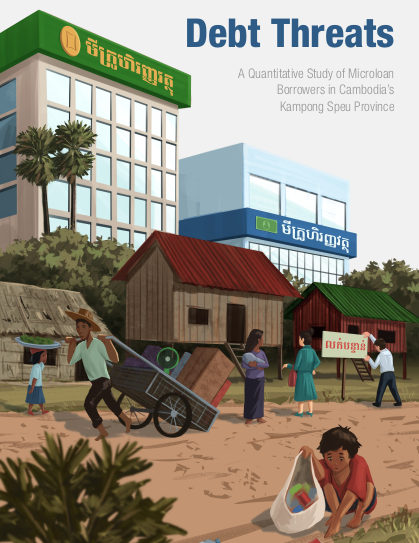
Debt Threats: A Quantitative Study of Microloan Borrowers in Cambodia’s Kampong Speu Province
Released in August 2023
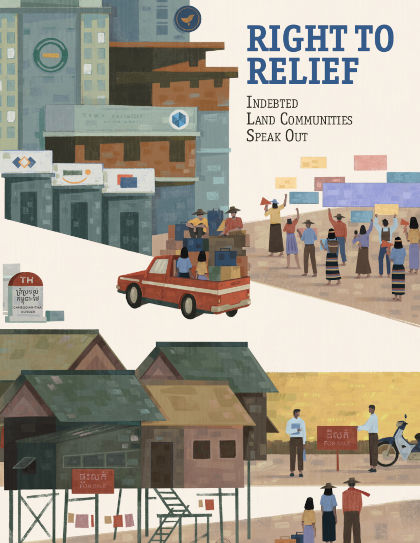
Right to Relief: Indebted Land Communities Speak Out
Released in June 2021
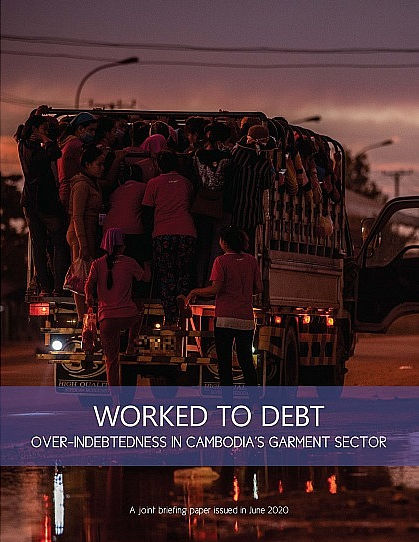
Worked to Debt: Over-Indebtedness in Cambodia's Garment Sector
Released in June 2020
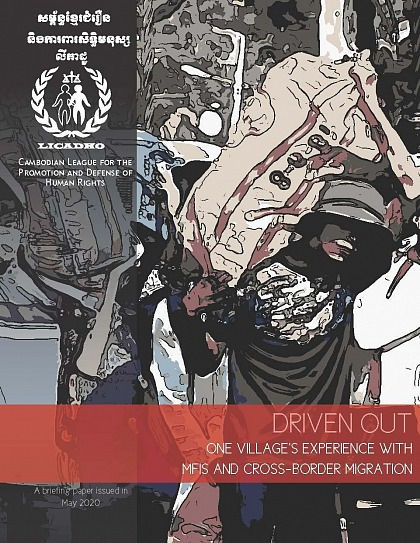
Driven Out: One Village's Experience with MFIs and Cross-Border Migration
Released in May 2020
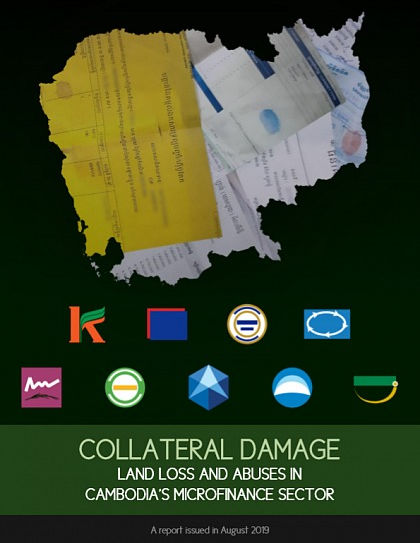
Collateral Damage: Land Loss and Abuses in Cambodia's Microfinance Sector
Released in August 2019